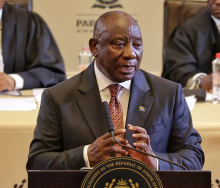A record 137 economies around the world have adopted key reforms that make it easier to start and operate small and medium-sized businesses, according to the World Bank Group report, ‘Doing Business 2017: Equal Opportunity for All’.
The report found that developing countries had carried out more than 75% of the 283 reforms in the past year, with Sub-Saharan Africa (SSA) accounting for over one-quarter of all reforms.
In its global country rankings of business efficiency, Doing Business 2017 awarded its coveted top spot to New Zealand. Singapore ranks second, followed by Denmark; Hong Kong SAR, China; Republic of Korea; Norway; United Kingdom; United States; Sweden; and Former Yugoslav Republic of Macedonia.
The world's top 10 improvers, based on reforms undertaken, are Brunei Darussalam; Kazakhstan; Kenya; Belarus; Indonesia; Serbia; Georgia; Pakistan; United Arab Emirates (UAE); and Bahrain.
The report cites research that demonstrates that better performance in Doing Business is, on average, associated with lower levels of income inequality, thereby reducing poverty and boosting shared prosperity.
"Simple rules that are easy to follow are a sign that a government treats its citizens with respect. They yield direct economic benefits - more entrepreneurship; more market opportunities for women; more adherence to the rule of law," said Paul Romer, World Bank chief economist and senior vice president. "But we should also remember that being treated with respect is something that people value for its own sake and that a government that fails to treat its citizens this way will lose its ability to lead."













